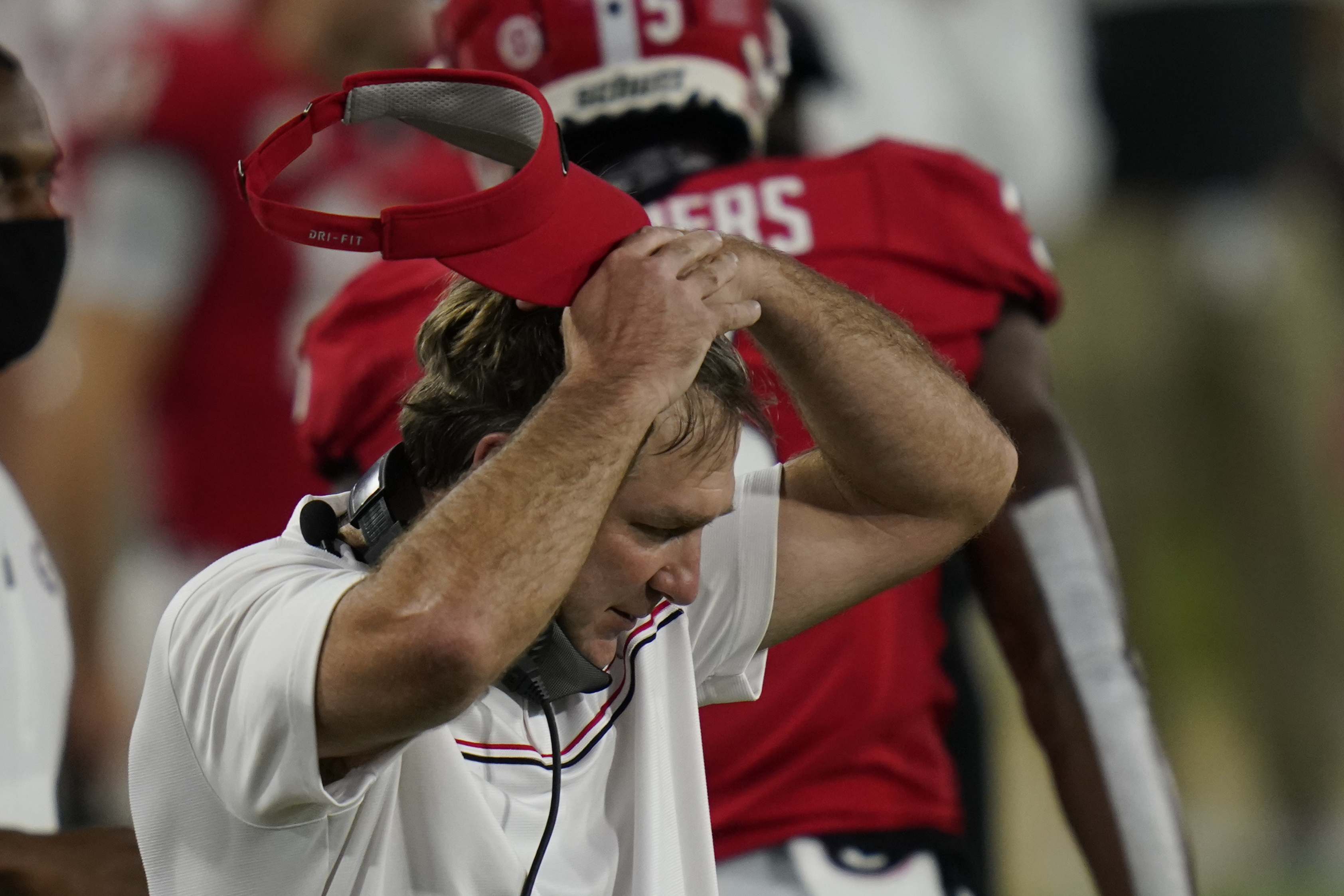In a shocking move that has rocked the college football world, the University of Georgia has parted ways with head coach Kirby Smart after a disappointing start to the season.

Smart, who had previously enjoyed tremendous success with the Bulldogs, including leading them to a national championship game, has been let go amid concerns about a difference in football philosophy and a string of underwhelming team performances. The announcement of his firing sent shockwaves throughout the sports community, leaving fans, analysts, and players alike scrambling for answers.
The Fall of a Champion Coach
Kirby Smart’s tenure at Georgia had been one of promise and expectations. Hired as the Bulldogs’ head coach in 2016, Smart had quickly transformed the program into one of the most formidable teams in college football. Under his leadership, Georgia made numerous appearances in major bowl games, and his reputation for defensive excellence was widely recognized. Most notably, he led Georgia to a national championship game appearance in 2018, where they narrowly lost to Alabama.
Smart’s success, however, has come under increasing scrutiny this season. After a rough start to the year, Georgia found itself struggling to maintain its usual high standards. The Bulldogs, once considered championship contenders, faced challenges both offensively and defensively. Despite having top-tier talent and recruits, the team seemed to be failing to meet expectations. The once-potent offense looked disjointed, and the defense, while still strong, did not have the same dominant presence that had been a hallmark of Smart’s previous squads.
While a bad season can happen to any coach, Georgia’s decision to part ways with Smart came as a surprise to many. The official reason cited by the university was a difference in football philosophy. This difference was seen as a fundamental disconnect between Smart’s vision for the team and the administration’s expectations. As is often the case with high-profile programs like Georgia, winning is the ultimate goal, and when expectations are not met, even the most decorated coaches can find themselves on the chopping block.
A Change in Leadership: Travaris Robinson Takes Over
In a swift move to address the situation, Georgia named defensive coordinator Travaris Robinson as the interim head coach. Robinson, who had been with the team for several years, is seen as a well-respected figure within the program. His defensive expertise and strong leadership skills have made him a key figure in Georgia’s success on that side of the ball.
Robinson’s appointment as interim manager marks a new chapter for the Bulldogs. With Smart’s firing, the team now finds itself at a crossroads. The transition from a long-term head coach to an interim figure is always fraught with challenges, and Robinson faces the difficult task of steering the team back into championship contention. Under his leadership, Georgia will need to regain its footing and develop a cohesive strategy that aligns with both the team’s strengths and the expectations of the university and its passionate fanbase.
What Went Wrong? The Philosophy Clash
One of the most intriguing aspects of Smart’s departure is the mention of a difference in football philosophy. While specific details of this philosophical rift have not been fully disclosed, it is clear that Georgia’s administration felt that Smart’s approach to the game was no longer conducive to long-term success. College football has evolved in recent years, and teams must adapt to changing trends, especially in terms of offensive strategies.
Smart’s defensive prowess was always his greatest strength, but college football has increasingly favored high-powered offenses in recent seasons. The explosive spread offenses, quarterback-centric systems, and the fast-paced tempo that many teams are now employing may have been at odds with Smart’s more traditional, defense-heavy approach. While Smart’s defensive schemes were still top-notch, it’s possible that Georgia’s administration wanted a more balanced team capable of competing in the modern, high-scoring college football landscape.
In addition, the team’s underperformance during critical games may have contributed to the growing frustration. Despite having elite talent, Georgia struggled to execute consistently, which led to losses in key matchups. These results left fans and officials questioning whether Smart’s leadership was still the right fit for the program.
The Road Ahead for Georgia Football
Now, as Georgia embarks on the rest of its season under interim coach Travaris Robinson, the future of the program is uncertain. The Bulldogs still have a wealth of talent, and the potential to turn things around remains strong. However, the next few weeks will be critical in determining whether Robinson can right the ship and make a case for his long-term appointment as head coach.
Georgia’s administration will undoubtedly be keeping a close eye on the team’s performance under Robinson’s leadership, as they look to chart the future of the program. Will they choose to make a permanent coaching change at the end of the season? If so, who will they target as Smart’s replacement? The search for a new head coach, if necessary, could lead to a major shakeup in the college football coaching ranks.
For now, the focus shifts to how Georgia responds to this unprecedented change. With a talented roster, passionate fanbase, and the leadership of Travaris Robinson, the Bulldogs will look to reclaim their spot among the elite teams in college football.
In the coming weeks, the football world will be watching closely to see if Georgia can turn its season around under new leadership, or if the bombshell firing of Kirby Smart will mark the beginning of a longer rebuilding process. Whatever the outcome, it’s clear that the landscape of Georgia football has changed forever.
